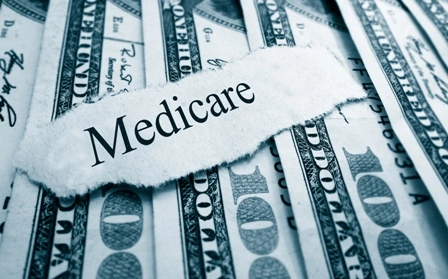Grasp 'Incident-to' Opportunity for NPP Pay

If you have non-physician practitioners (NPPs) working in your general surgery practice, you better know this one billing trick — and the guidelines for using it — that can increase your pay by 15 percent.
Way in: Under certain circumstances, the NPP can bill “incident-to” under the physician’s National Provider Identifier (NPI), which will net your practice 100 percent reimbursement from Medicare. If you bill under the NPP’s NPI, you’ll usually receive 85 percent of the normal global fee found in the Medicare Physician Fee Schedule, says Jill Young, CPC, CEDC, CIMC, owner of Young Medical Consulting in East Lansing, Mich.
Follow this incident-to advice to ensure you know when you can — and can’t — capture the full 100 percent.
Look for ‘Established Plan’ First
If you are billing incident-to the physician, the NPP must be following an established plan of care that the physician has already formulated.
In short: NPPs cannot bill incident-to the physician for new patients or established patients with new problems.
“[Incident-to] services must be part of the physician’s services to diagnose or treat the injury or illness, and be provided under the physician’s direct supervision,” according to Jean Acevedo, LHRM, CPC, CHC, CENTC, president and senior consultant with Acevedo Consulting Incorporated in Delray Beach, Fla.
Additionally, the NPP must perform incident-to services as an integral, although incidental, part of the physician’s personal professional services in the course of diagnosis or treatment of an injury or illness, according to Marvel J. Hammer, RN, CPC, CCS-P, PCS, ACS-PM, CHCO, of Denver’s MJH Consulting. “The NPP performing incident-to services must be an expense to the physician practice … an employee, independent contractor, leased employee,” she adds.
Caveat: Medicare covers incident-to services only in the office or home place of service, Hammer warns. And not all payers honor the incident-to policy, even if you meet the requirements.
Follow Direct Supervision Rules
To bill incident to, the NPP must be working under the “direct supervision” of a physician in the practice, which means that the physician must be in the office suite and immediately available. The supervising physician, however, does not need to be the physician who initiated the treatment plan, says Suzan (Berman) Hauptman, MPM, CPC, CEMC, CEDC, director of coding operations at Allegheny Health Network in Pittsburgh, Pa.
Beware: Although your NPP may be able to perform a particular service unsupervised based on the scope of practice, if you want to bill incident to the physician and garner 100 percent allowable pay, you have to follow the rules for direct supervision.
What that means: For example, the physician cannot be across the street, three blocks away, or available via cell phone but not in person, Acevedo says.
“If there is no physician physically present in the office suite during the time of the NPP service, the service must be billed to Medicare under the NPP’s name and NPI,” Hammer says.
Do the math: According to the Medicare physician fee schedule, 99214(Office or other outpatient visit for the evaluation and management of an established patient, which requires at least 2 of these 3 key components: a detailed history; a detailed examination; medical decision making of moderate complexity…) pays $108.88 (national non-facility rate, 35.9335 conversion factor). If you file the claim under the NPP’s NPI instead of billing incident-to under the physician’s NPI, you’ll collect only about $92 for the same service.




